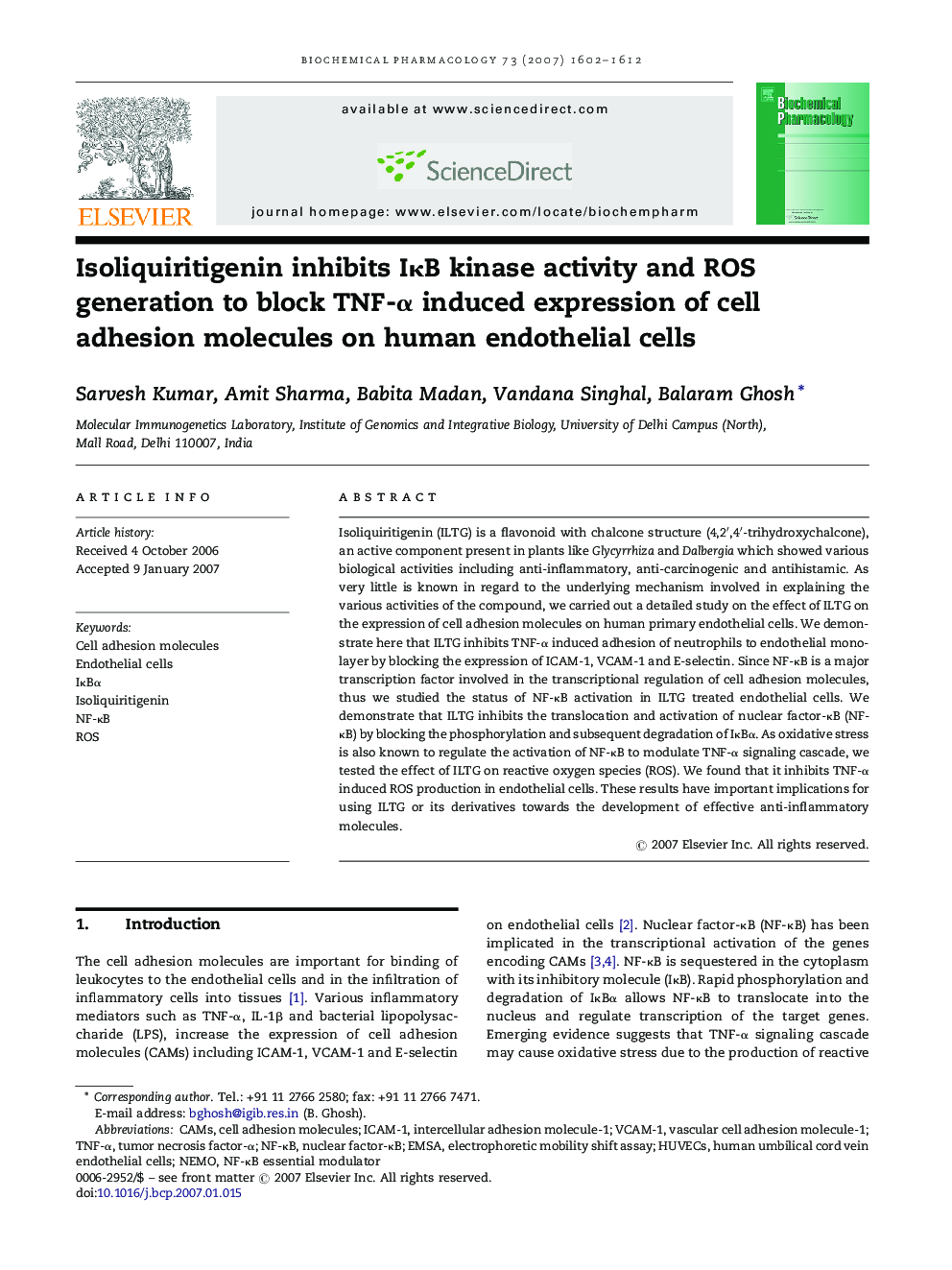| Article ID | Journal | Published Year | Pages | File Type |
|---|---|---|---|---|
| 2515664 | Biochemical Pharmacology | 2007 | 11 Pages |
Isoliquiritigenin (ILTG) is a flavonoid with chalcone structure (4,2′,4′-trihydroxychalcone), an active component present in plants like Glycyrrhiza and Dalbergia which showed various biological activities including anti-inflammatory, anti-carcinogenic and antihistamic. As very little is known in regard to the underlying mechanism involved in explaining the various activities of the compound, we carried out a detailed study on the effect of ILTG on the expression of cell adhesion molecules on human primary endothelial cells. We demonstrate here that ILTG inhibits TNF-α induced adhesion of neutrophils to endothelial monolayer by blocking the expression of ICAM-1, VCAM-1 and E-selectin. Since NF-κB is a major transcription factor involved in the transcriptional regulation of cell adhesion molecules, thus we studied the status of NF-κB activation in ILTG treated endothelial cells. We demonstrate that ILTG inhibits the translocation and activation of nuclear factor-κB (NF-κB) by blocking the phosphorylation and subsequent degradation of IκBα. As oxidative stress is also known to regulate the activation of NF-κB to modulate TNF-α signaling cascade, we tested the effect of ILTG on reactive oxygen species (ROS). We found that it inhibits TNF-α induced ROS production in endothelial cells. These results have important implications for using ILTG or its derivatives towards the development of effective anti-inflammatory molecules.
